Covid: 'We are riding waves of hope and despair'
- Published
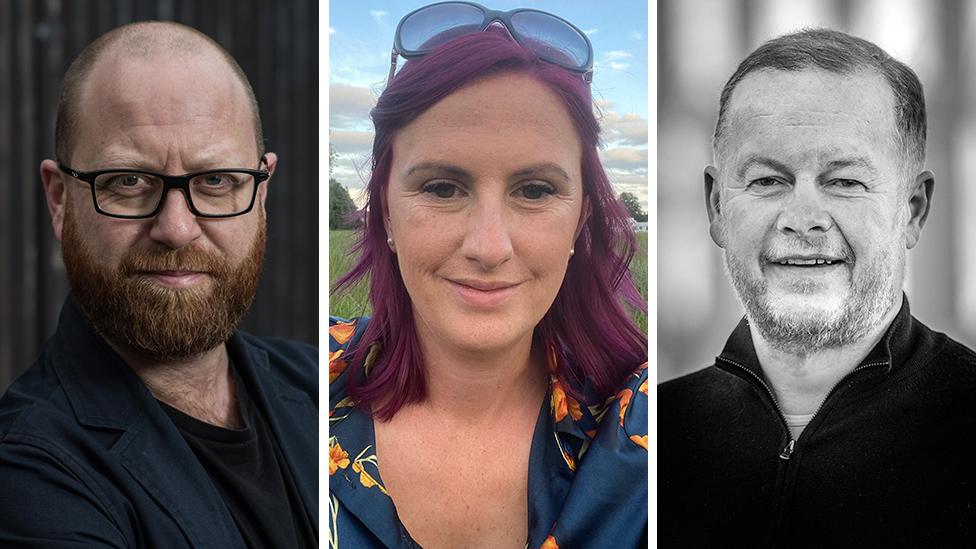
Cambridge venue bosses Matt Burman, Louise Holly and Dave Murphy look ahead after the 21 June unlocking is delayed
Some coronavirus restrictions in England have been lifted but many will now stay in place until 19 July. What does it mean for venues that had been hoping to be packed with audiences and clubbers in the coming weeks?
'There's still no assurances and no guarantees'
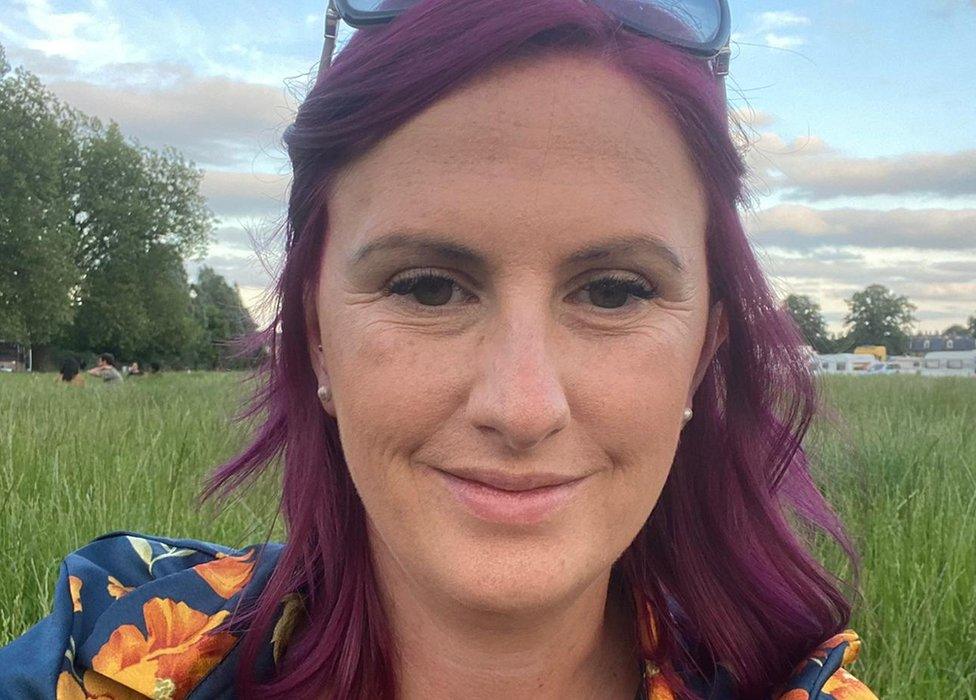
Nightclub owner Louise Holly says when nightclubs eventually come back, they will come back "strongly"
Nightclub owner Louise Holly had been looking forward to welcoming thousands of clubbers to her two venues on 21 June.
She had opened Chalk in Brighton just six months before the coronavirus pandemic hit and then decided to take over a second venue in Cambridge during lockdown.
The 31-year-old says she was looking forward to opening Mash, which was previously Fez Club in Market Passage, for the first time.
"To a degree, you had to plan to reopen on 21 June," she says.
"We catered all of our marketing to that date, we sold out across both cities two weeks' worth of tickets, we had sold almost 7,000 tickets to our opening parties, so it was a huge blow to be told it will probably be four weeks.
"There's still no assurances and no guarantees, though, and for us the problem is that we have a lot of staff we cannot employ.
"But we're still not in a position where we can say 'yes, we can definitely give you a job' because it was quite clear that 19 July isn't a guaranteed date, it's a date to work towards."
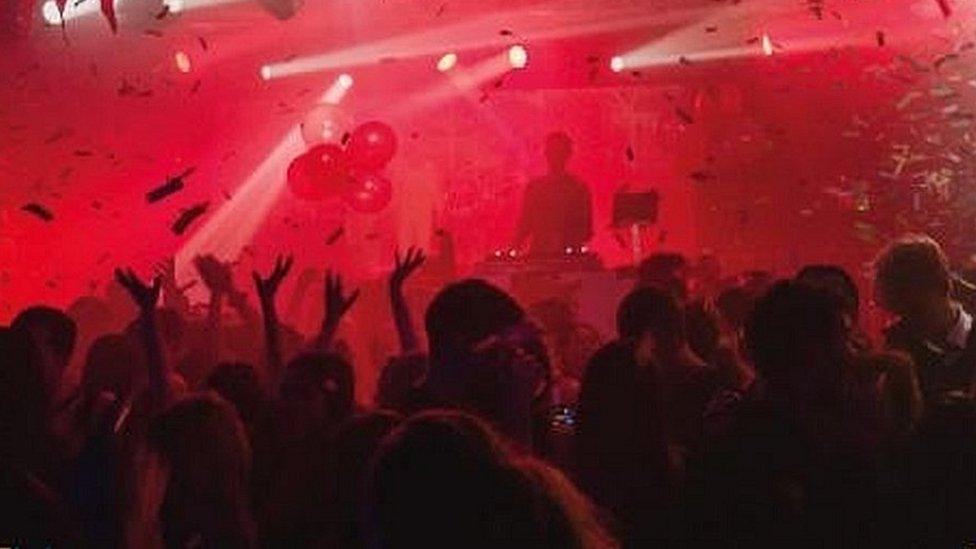
Mrs Holly opened Chalk in Brighton in September 2019 and she took over what was Fez Club in Cambridge during lockdown
Mrs Holly says the opening weeks could have brought in "several hundred thousand pounds".
"It's not a small amount of money, we've been shut for 15 months, this would've been the first big opening, so it's a real blow to be honest," she says.
She is confident that when nightclubs finally do reopen, "they're going to come back really strongly".
"We have to ride this final, hopefully final, wave of being shut because I think once they open there are predictions saying there's going to be the biggest nightclub resurgence for many many years," she says.

'The arts help heal communities'
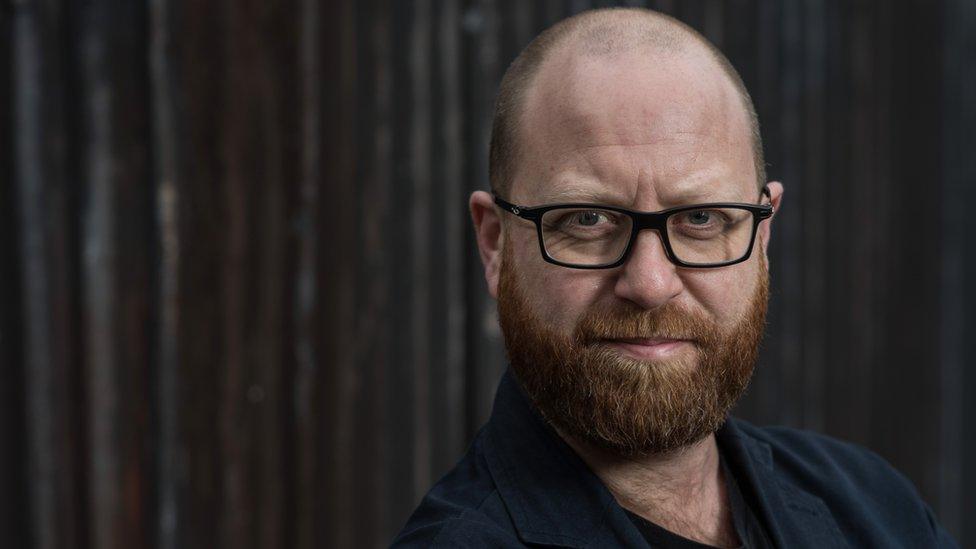
Matt Burman, from Cambridge Junction, says they need to be able to run events at full capacity to recover from the pandemic
Some 1,000 revellers were due to be dancing the night away at the Cambridge Junction on 25 June.
But the gig will be one of several sold-out full capacity events to either be postponed or reduced to 20% capacity in light of Monday's government announcement.
Artistic director and chief executive Matt Burman says: "We were looking forward to the lifting of restrictions and welcoming larger audiences, and we've been presenting socially distanced performances for the last five weeks and these have been really successful.
"But, in the longer term, we absolutely need to be presenting 1,000-capacity shows and clubs in order to recover.
"I'm sad and sorry for our audiences who were looking forward to those events we had planned, we all wanted to get back in the rooms and get back dancing and singing together.
"We are riding these waves of hope, disappointment and despair and that's why we need theatres and arts centres open again.
"The art we make and the experiences we give are part of our healing as communities after 15 or 16 months of living and working through something none of us ever anticipated."
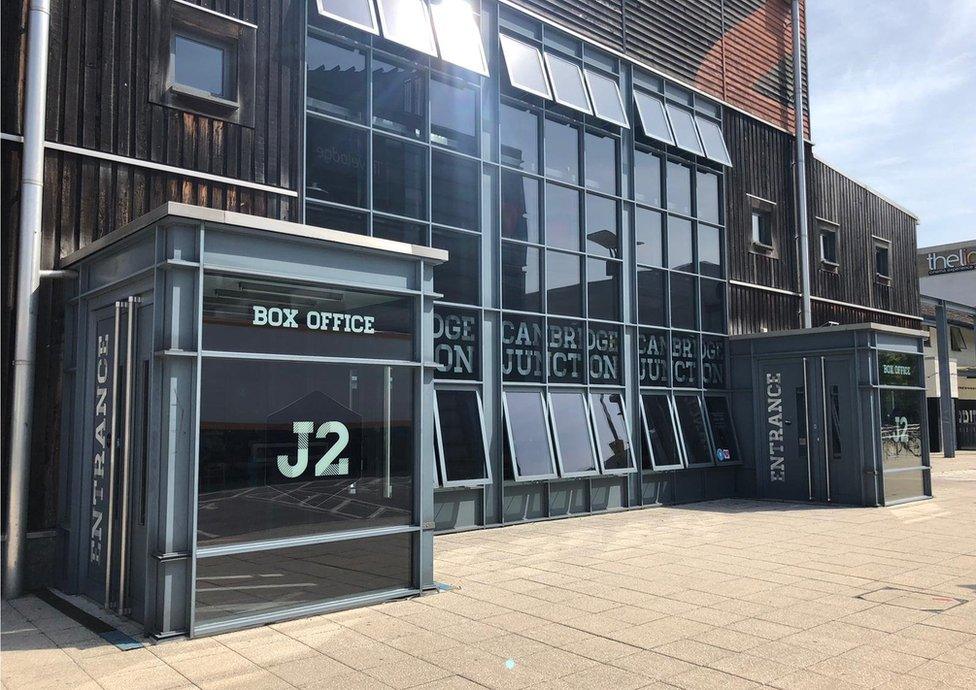
Cambridge Junction can run events with a 1,000-capacity in normal times but with social distancing this is cut to 200
Mr Burman, however, says "unlocking too soon would be worst thing to do" in terms of the long-term impact of the pandemic.
He is hopeful their autumn programme will be able to go ahead as scheduled.
The government has previously offered grants to the sector through the Culture Recovery Fund, external and employees have been supported through the Coronavirus Job Retention Scheme, external.
Mr Burman says it is important for those two initiatives to be extended so they can support their staff and artists.

'We will survive for another month'
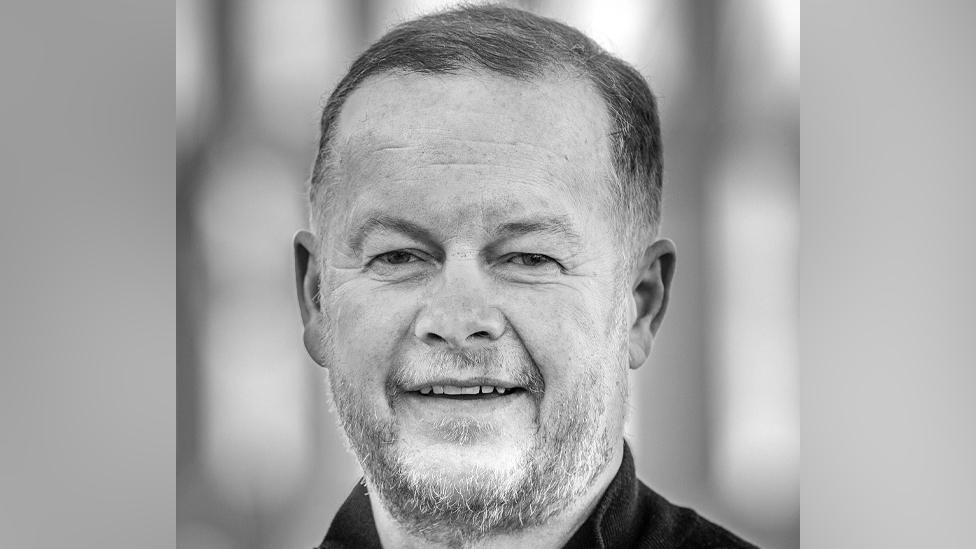
"The show will go on," says Cambridge Arts Theatre's chief executive Dave Murphy
Theatres are also among those desperate to welcome back a full auditorium.
But Cambridge Arts Theatre is remaining upbeat.
It has a schedule running throughout June and July, when the remaining coronavirus restrictions will still be in place,but it says it will continue to run performances socially distanced.
The theatre's chief executive Dave Murphy says: "We're a theatre and whatever happens, the show will go on.
"Until the Monday 19 July, we will present The Woman in Black, Ralph Fiennes in Four Quartets and Michael Frayn's masterpiece Copenhagen on a socially distanced basis following our industry's See It Safely guidelines."
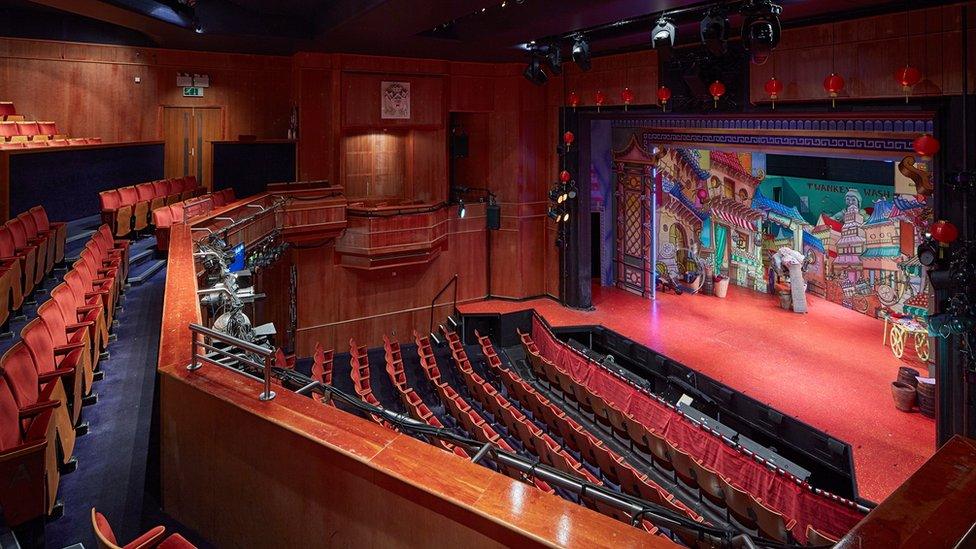
Cambridge Arts Theatre hopes to return to full capacity from 19 July
The theatre says it will have to re-arrange its seating plan in accordance with the restrictions and the box office team would make contact with customers who had purchased tickets for the affected performances.
It says it is aiming "to be as fair as possible and will be allocating seats based on booking date and time", and will offer a refund if it cannot offer alternative seating or an alternative performance date.
Mr Murphy adds: "After Monday 19 July, we hope to return to full capacity. After 15 hard months of closure, we will survive for another month."
Find BBC News: East of England on Facebook, external, Instagram, external and Twitter, external. If you have a story suggestion email eastofenglandnews@bbc.co.uk, external